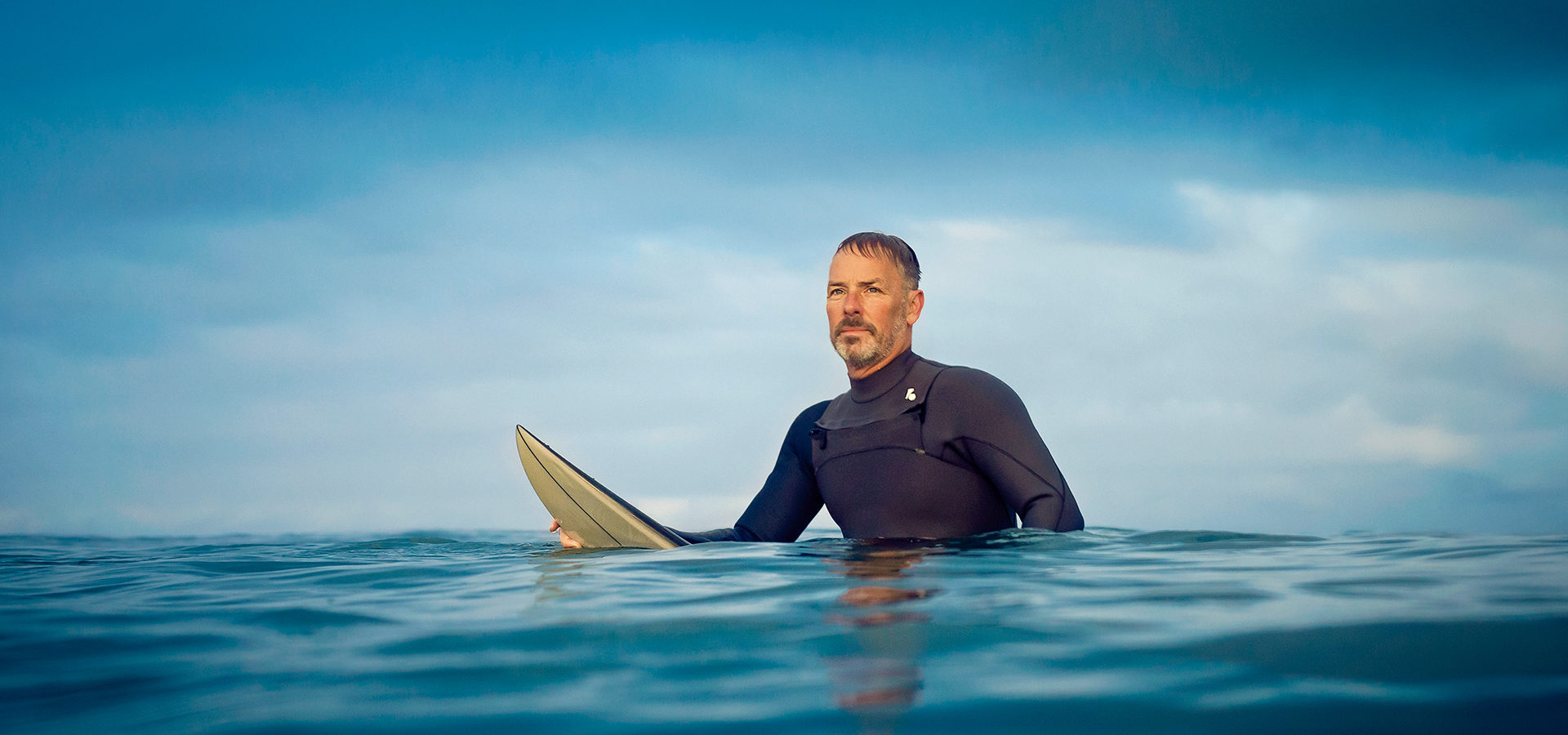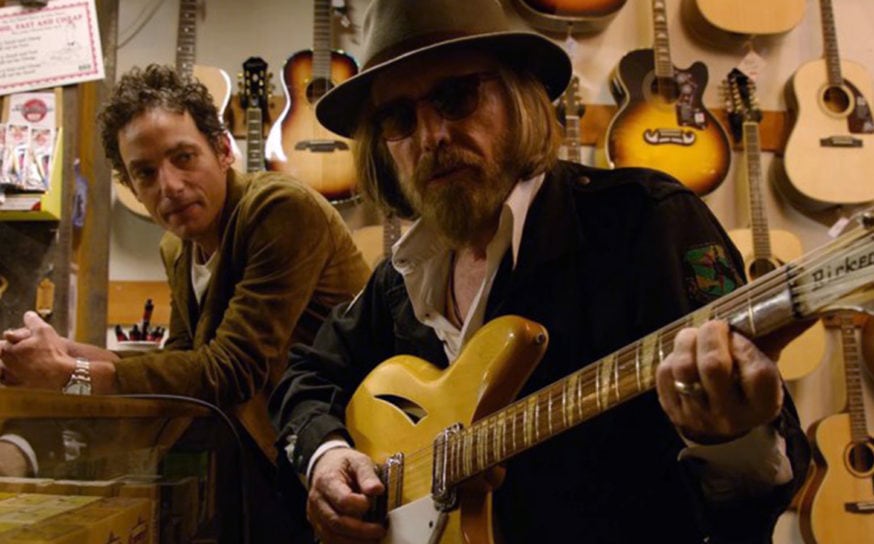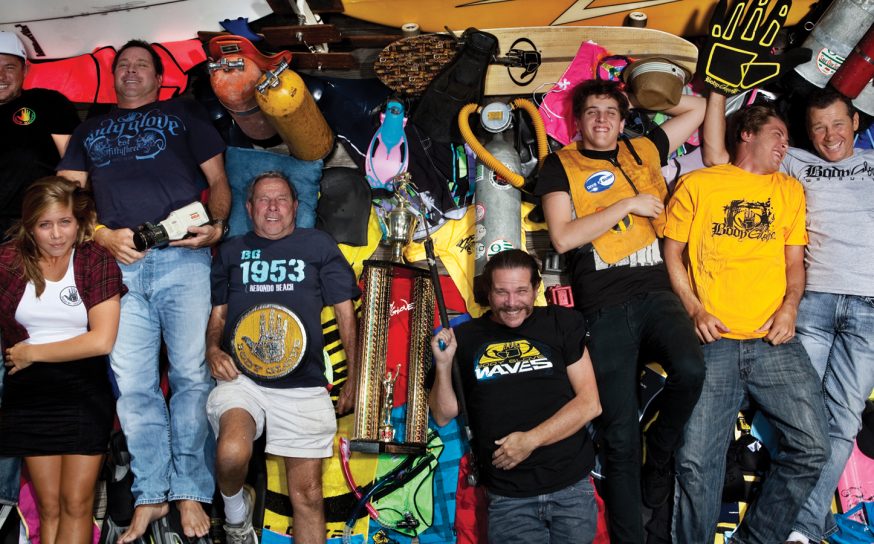For Erik Logan, Becoming the CEO of the World Surf League Was a Serendipitous Journey
Getting on board.
-
CategoryMakers + Entrepreneurs, Outdoor Adventure
-
Written byShaun Tolson
-
Photographed byJeff Berting
Almost a decade ago, Erik Logan stood in the sand at El Porto and braced himself for what was to come. Wearing a brand-new wetsuit and clutching a borrowed surfboard, he stared out at the waves breaking not far from shore. The midmorning waves that Saturday weren’t anything special—“They were all pretty standard South Bay closeouts,” the now 50-year-old recalls—but that didn’t matter. Erik was preparing to do something he had never done before. He was about to take his first steps into the ocean.
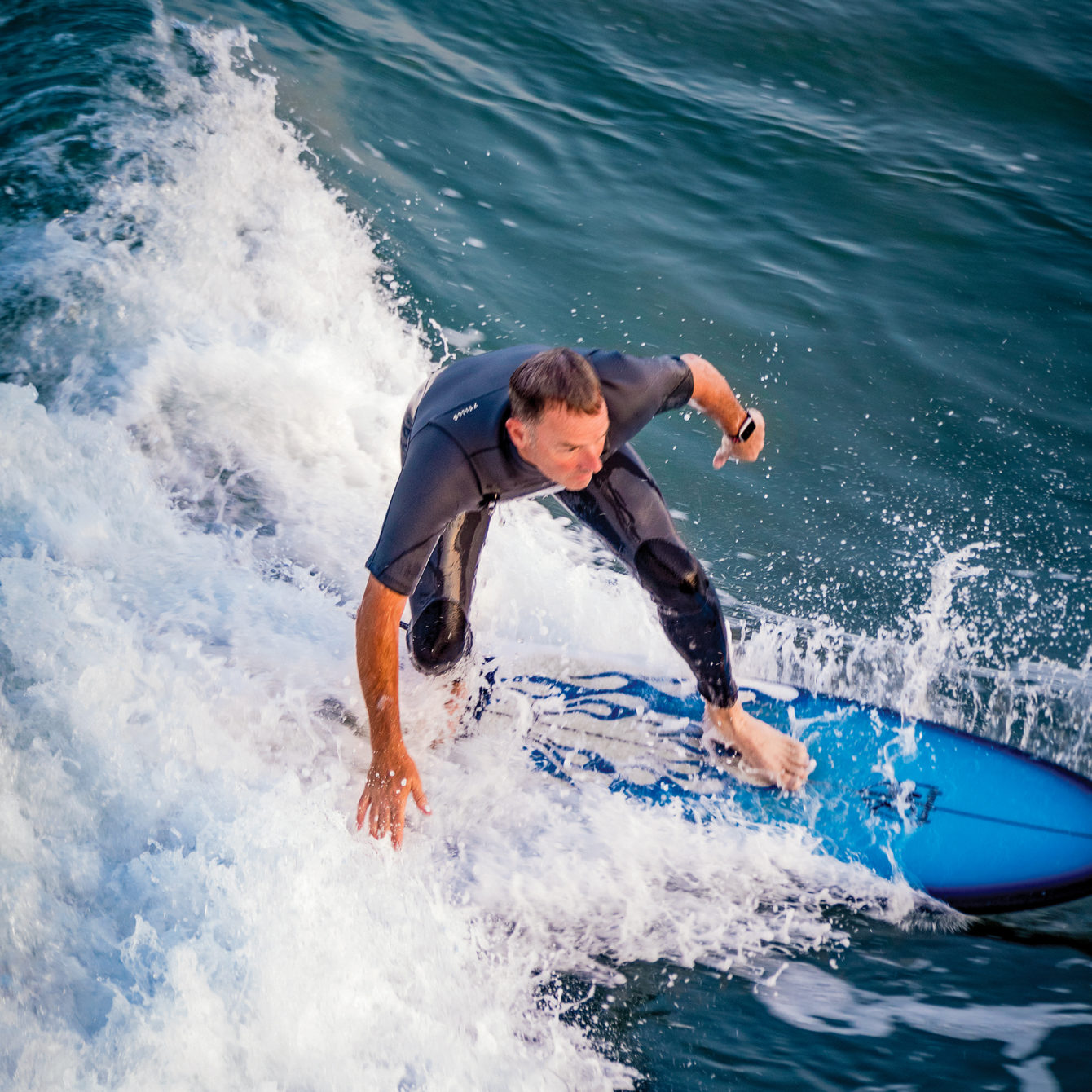
“I grew up in a landlocked state,” he says, “and I was terrified of the ocean. I wouldn’t go in. In fact, I wouldn’t go in lakes if I couldn’t see the bottom.”
The origin of Erik’s deep-water phobia had nothing to do with his Oklahoma City upbringing. The Midwest wasn’t to blame at all. Instead, it was Steven Spielberg’s fault—at least indirectly. Erik, like thousands of other people, was traumatized by the film Jaws.
After watching Spielberg’s masterful, killer shark-focused thriller, Erik spent the next several decades of his life avoiding the ocean. “That movie had a profound effect on me,” he recalls. But in early 2012, he was tasked with a daunting professional challenge. Only one year earlier, The Oprah Winfrey Show had filmed its final episode. When the show concluded, Harpo Studios and Discovery, Inc. created the Oprah Winfrey Network as a platform to continue delivering Winfrey’s message and vision.
“The journey of catching waves and feeling and riding that energy is never the same whenever you do it. Every wave is different and has been created thousands of miles away. There are things in the world that are much bigger than you, and I find that the ocean is a great grounding mechanism in that way for me.”
Erik, who then served as the co-president of Harpo Studios, was hired as the new network’s president. The fledgling network had reached a critical point in its existence only a year after it had launched, and Erik was at the helm—attempting to steer it through challenging developments to cement its long-term success.
In 2011 Erik moved to Manhattan Beach and initially watched from afar, observing how the ocean served as the nucleus of the community and its culture. Those observations motivated him to embrace that culture and the Manhattan Beach lifestyle. He also recognized that if he was going to achieve professional success during that stage of his career, he needed a sanctuary from the corporate stress and pressure that he felt on a daily basis. Surfing became that sanctuary.
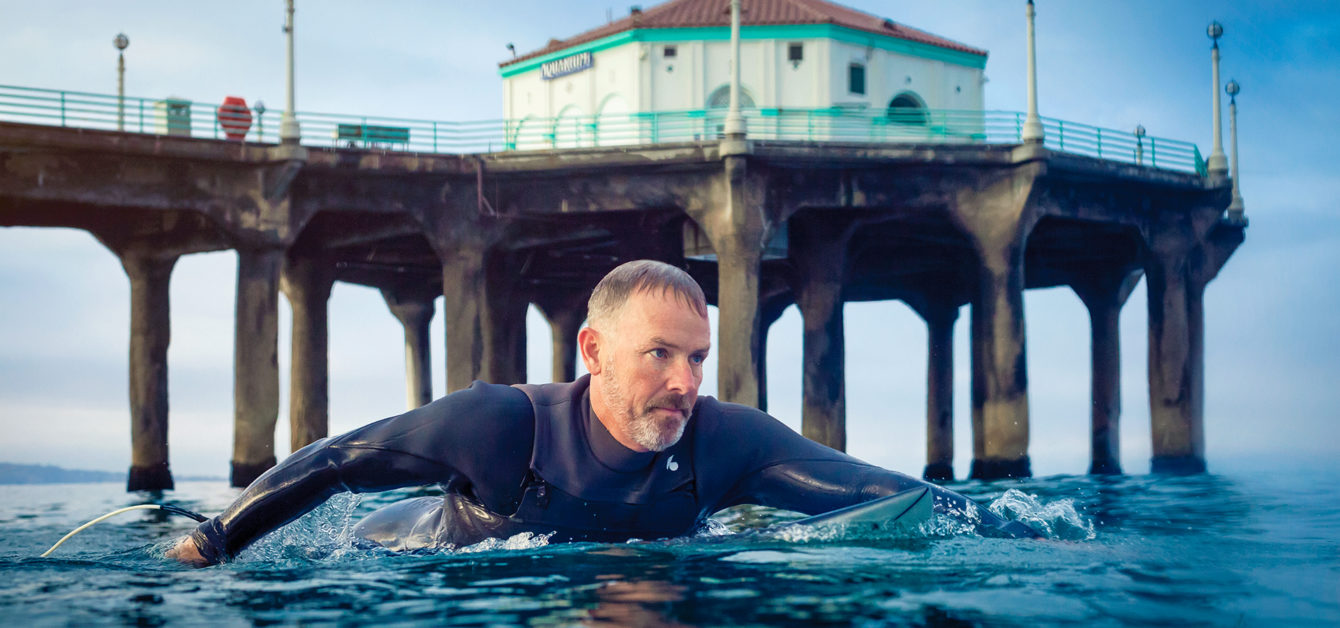
If you’re wondering how a 40-year-old man could take up surfing after spending his entire adult life terrified of the ocean, the answer is—surprisingly—not that complicated. Erik decided that a surfboard and wetsuit could provide the necessary counterbalance in his life simply by watching other people ride waves along Manhattan Beach. “I thought it looked interesting and fun,” he recalls. “It wasn’t anything more than that. Eventually, I just decided to give it a go.”
As Erik stepped into the frothy surf on that Saturday morning in March 2012, the water chilled his feet, which sparked a surge of anxiety that rushed through the rest of his body. (Overcoming a decades-long fear was not without its challenges.) However, as Erik waded deeper into the Pacific, his wetsuit compensated for the ocean’s brisk temperature—and that alone put him at ease.
“It felt like a suit of armor for me,” he says. “I immediately felt safe. That allowed me to start to experience emotionally what the ocean had to offer.”
Those benefits of the ocean, along with the cathartic elements that surfing can provide, are in Erik’s opinion largely existential. “It’s an individual, soul-connecting, spiritual moment where you have an opportunity to ride raw energy,” he says. “The journey of catching waves and feeling and riding that energy is never the same whenever you do it. Every wave is different and has been created thousands of miles away. There are things in the world that are much bigger than you, and I find that the ocean is a great grounding mechanism in that way for me.”
By the end of his self-guided introduction to surfing that day, Erik was captivated. Almost immediately thereafter he searched for nearby surfing instructors and began to take lessons—something he continues to do almost 10 years later.
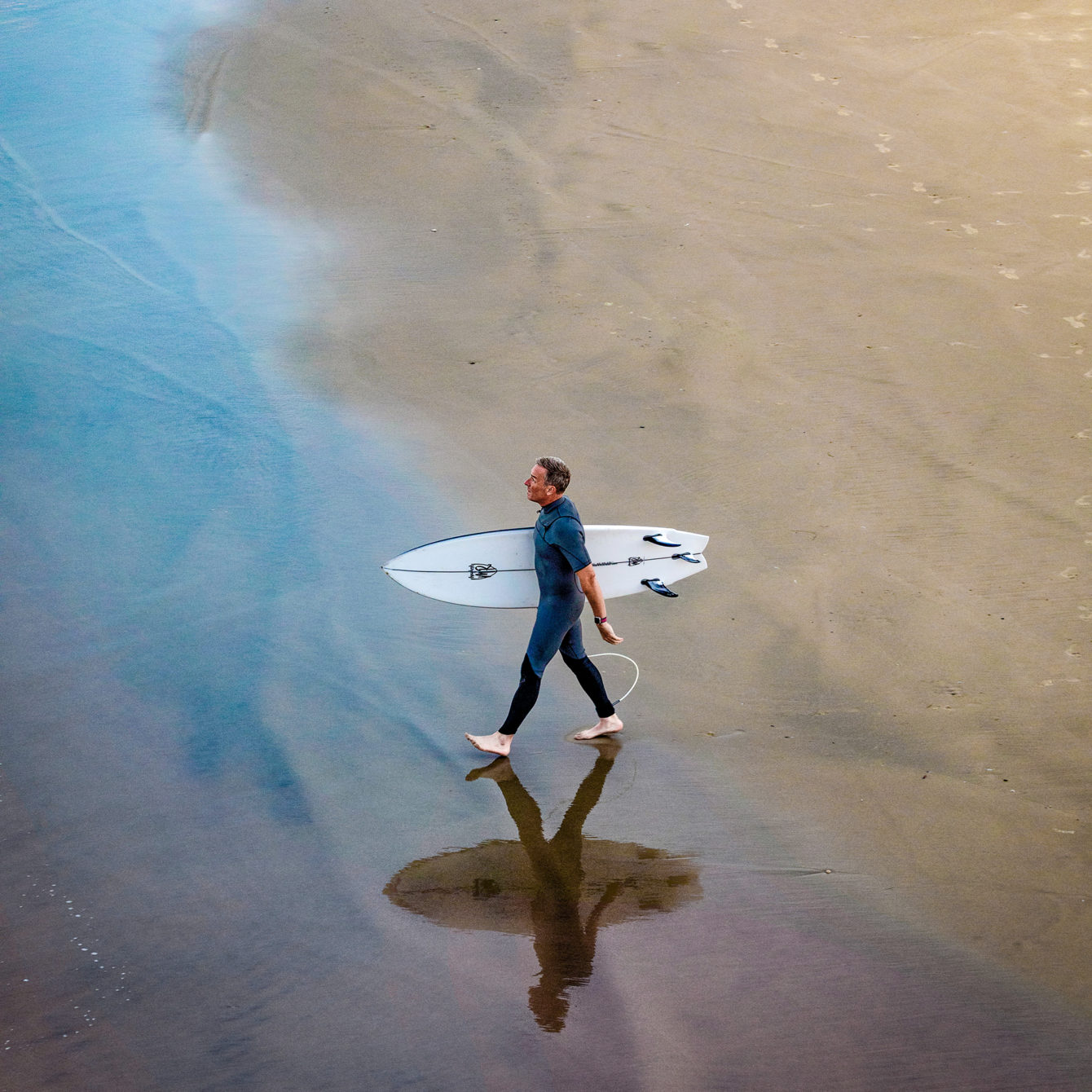
Although Erik discovered surfing’s spiritual benefits, the sport also successfully provided him with the temporary escape he needed. “It allowed enough air and light to come into my consciousness to try to be a better president and to lead the network through some challenging times,” he says. “It gave me perspective on what I was working on, and that made me a better executive.”
Surfing also laid the groundwork for an eventual career move. As last decade neared its end, Erik was ready for his next corporate challenge, and it was presented to him in a World Surf League-wrapped package. Founded in 1976 and headquartered in Santa Monica, the World Surf League (WSL) is a global organization that produces more than 180 surfing events throughout the world. As Erik describes it, the WSL is “a sports league with a media company wrapped around it.”
In 2019 he joined the company as the head of its production studio. One year later, he was promoted to CEO.
Looking back on his move to Manhattan Beach and the exposure to surfing that it provided him, Erik recognizes that those events were serendipitous. “I started my journey of learning to surf, learning to appreciate the ocean and falling in love with everything that it has to offer,” he says. “That ultimately led me to become the CEO of the World Surf League.”
In that role, Erik aims to grow the sport’s international popularity. One of the organization’s key initiatives to accomplishing that hinges on the production of fun and unique television programs that can introduce surfing to an audience of millions of people who may have otherwise never been exposed to it.
To date, the organization has produced almost two dozen original series, but it’s also spearheaded a reality TV show on ABC called The Ultimate Surfer. The show chronicles a surfing competition where 14 contestants live at Kelly Slater’s surf ranch and compete for prize money and a spot on the WSL. Apple TV is also set to air a documentary series that brings viewers behind the scenes of what it’s like to live and compete on the WSL.
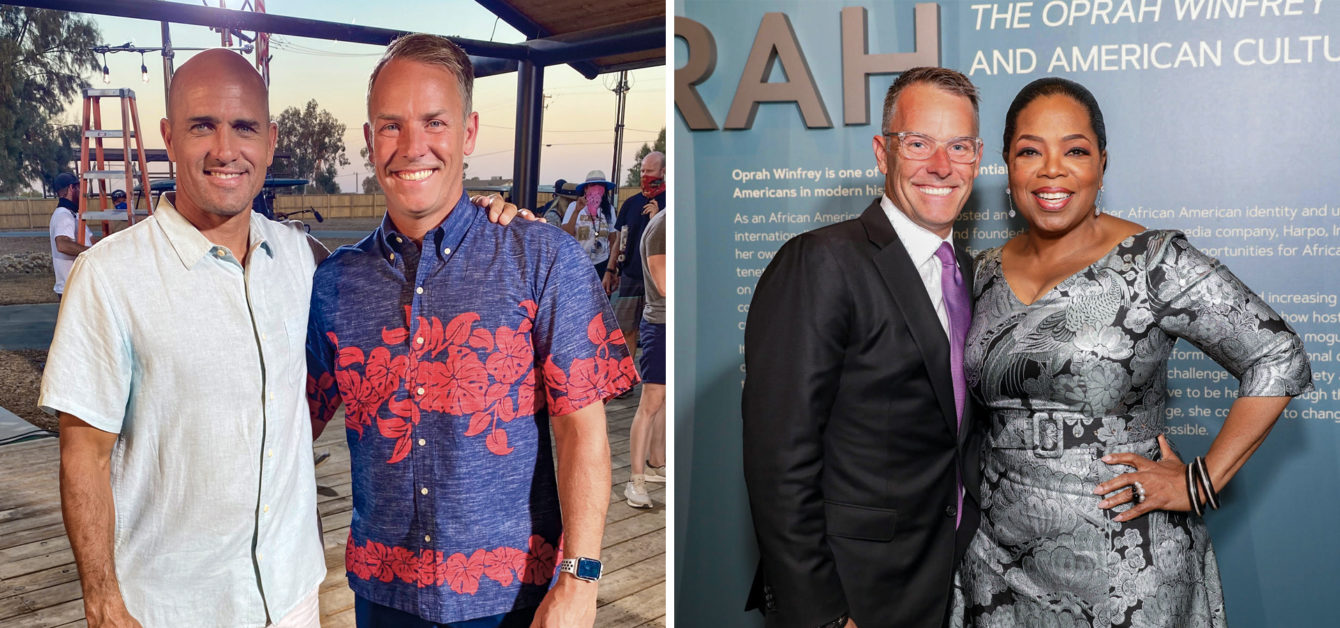
Needless to say, had Erik never bravely ventured into the Pacific with a surfboard, he wouldn’t be in the position to lead a global surfing league or grow the sport’s popularity. In his estimation, he wouldn’t have a job at the WSL at all. “If you’re going to lead a global organization around a sport, regardless if it’s surfing or anything else,” he asserts, “it’s critically important that you have a broad and deep understanding of that sport.”
Erik recognizes that he’s in an enviable position, given that his profession overlaps with a personal passion. But he also acknowledges that there was no way for him to forecast such a development when he was drawn to the Pacific’s waves almost a decade ago. “The universe will always provide you with what you need,” he says. “That’s one of the lessons I’ve learned in my life, and that’s true for what surfing has done.”
As for other lessons that Logan has learned throughout his life, one of the most significant occurred while he was serving as the president of Harpo Studios—though he acknowledges that it’s a mantra that can be applied to all facets of life. “It’s the value of intentionality,” he says. “Everything that you do as you move through business has to be done with intention. Without that clarity, it’s really hard to measure success or failure.”
Ten years ago, Erik was in need of an escape from the stresses of his job. Today his occupation affords him the opportunity to strengthen the love of the sport that initially provided that escape. “It’s far deeper than I could possibly articulate,” he says of his love for surfing and his position as the CEO of the WSL. “Even before I was the CEO, this job had a different grounding and a different feeling. It was a responsibility to do the best job I could because of how much I cared, and also because I knew how deeply our surfers and employees care.”
He continues, “Being a part of this organization broadens and deepens my appreciation for our athletes and the hundreds of people globally over the past four decades who have put on professional surfing. It’s a privilege and an honor to do this job every day because I can see the talent of our surfers and the love that they have for the sport. I can also see how our employees have sacrificed unselfishly to make sure the sport can continue.”
Even though it seems that Erik has landed his dream job, it’s impossible to predict the path that his career might take or where he might be professionally 10 years from now. That being said, it’s clear that he’ll never be far from the ocean’s waves.
“Whether I’m surfing, bodysurfing or in a kayak,” he says, “I just try to find as many different ways as possible to be in or around the ocean.” It’s a love story fitting for Hollywood . . . minus the killer shark.
A New Documentary Explores the Musical Legacy of LA’s Laurel Canyon
The birth of the California Sound in the mid-60s.
Their Strongest Suit: A Deeper Dive Into the Birth of Body Glove
The Meistrell family continues to run the family business started by twin brothers Bob and Bill in 1953.
Tracing the Haiku’s Uniquely California Connection
A Japanese writer describes leaving San Francisco in the first haiku published in an English novel.
Get the Latest Stories




